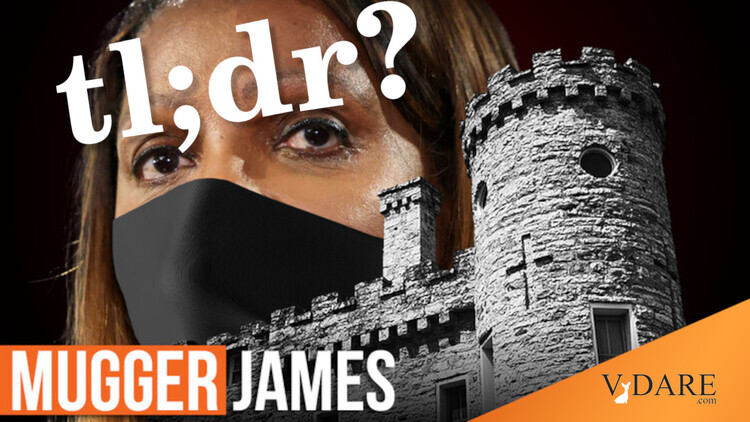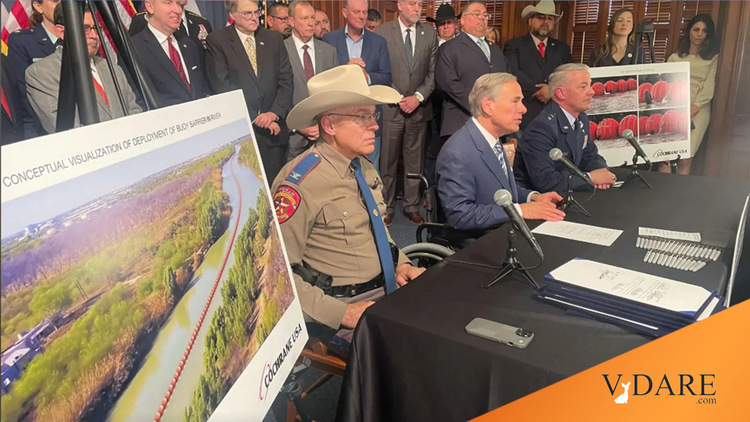![]() In the story Steve Sailer linked to about the death of Edgar Smith, the man who committed murder in 1957, and whose 1971 release was wangled by William F. Buckley, under the mistaken impression that Smith was innocent, the Washington Post’s Paul Valentine writes:
In the story Steve Sailer linked to about the death of Edgar Smith, the man who committed murder in 1957, and whose 1971 release was wangled by William F. Buckley, under the mistaken impression that Smith was innocent, the Washington Post’s Paul Valentine writes:
While on death row, Mr. Smith became a voracious reader of books and magazines, including National Review. Buckley, the political goliath and editor of the conservative magazine, struck up a correspondence and became convinced of Mr. Smith’s innocence after reading his skillfully written appeals. “Doesn’t it strain the bounds of credibility that an essentially phlegmatic young man, of nonviolent habits, would so far lose control of himself, in the space of a minute or two, as to murder under such circumstances a 15-year-old girl he hardly knew?” Buckley wrote in a 1965 Esquire magazine story
Edgar H. Smith 1934–2017, September 24, 2017
This reminds me of what happened when Josh Marshall heard Officer Darren Wilson’s testimony about Michael Brown’s attack on him—he just couldn’t believe that Brown—or anyone—would act like that because dangerous black thugs are totally outside his upper middle-class experience.
Here’s how Wilson’s account unfolds: Wilson passes Brown and his friend Dorian Johnson and tells them to stop walking in the middle of the street. The two friends basically blow Wilson off at first and then when Wilson tells them again, Brown yells “f— what you have to say.” When Brown and Johnson ignore Wilson’s request, he backs up his vehicle and turns to the left, slightly cutting them off. As Wilson begins to get out of his car, Brown says “What the f— are you going to do about it” and slams the door shut on him. After this, Brown and Wilson scuffle with Brown leaning into the car striking Wilson and Wilson, still seated, defending himself. Wilson describes thinking through how to escape from Brown or which weapon to use against him before finally pulling his gun and saying “get back or I’m going to shoot you.”At this point, Brown grabs Wilson’s gun and says “you are too much of a p—y to shoot me.” [Making Sense of Darren Wilson’s Story, TPM, November 26, 2014]
Marshall just couldn’t believe anyone would do that.
Ann Althouse deconstructed Marshall’s deconstruction in Trend watch: under-edited stream-of-consciousness writing by stressed-out liberals. [December 3, 2014]
Marshall invites us into his mind as he reads the transcript of Wilson's grand jury testimony. Supposedly, Marshall had his uncertainties, but Wilson's testimony made it apparent that Wilson lied.
It's Wilson's description of how the incident began that just does not ring true...
You can read Marshall's paraphrase of Wilson's description at the link.
Possible? Sure. Anything's possible. But I doubt it.
We all have our intuitive, experience-based sense of what's credible and what's not.
What's in Marshall's experience that makes him reliably intuitive about this? Or does it not really even matter? Marshall is just a web-writer, writing and writing. You can look at his mind if you are interested in viewing its workings.
I doubt Michael Brown was going to physically assault an armed police officer in broad daylight, sitting in his SUV, without any apparent provocation or mutually escalation....
Those last 2 words signal that the piece hasn't been reread and edited.
Some point out that Brown had roughed up a convenience store clerk after stealing some cigarillos just a short-time [sic] before the shooting. It's ugly video.... But attacking an armed police officer is not an act which follows clearly at all from stealing from a convenience store. If anything, it would probably make it more likely that he would run, though it's certainly possible it could have the reverse effect.
Says a man who would never rough up a shopkeeper if he got caught shoplifting. Marshall lets us watch him try to get into the mind of a person he can't understand and then turns the incomprehensibility into a conclusion that Wilson must be lying.
Well, the Grand Jury, with the help of the honest black eyewitnesses, was able to figure out the truth of Michael Brown’s attack on Wilson. And a New Jersey Police Department, Judge and jury were able to figure out Edgar Smith’s guilt before Buckley came along. However, since Steve compared the Smith case to Norman Mailer's advocacy of Jack Abbott, I'll repeat something I said a while back.
I read about this when Buckley was making the case that Smith had been wrongfully convicted, and I read about it when Smith reoffended and was arrested.(This is because my misspent youth was a conservative misspent youth, and I read NR and the Buckley anthologies yearly.)
He called Buckley for help of some kind, and Buckley immediately and very properly called the FBI.
![]() But Buckley, for all his faults, wasn't Norman Mailer. It was only his misguided belief that Smith was innocent that had him fighting to get him off death row–Mailer thought guys like Abbott should be allowed out even though they were guilty.
But Buckley, for all his faults, wasn't Norman Mailer. It was only his misguided belief that Smith was innocent that had him fighting to get him off death row–Mailer thought guys like Abbott should be allowed out even though they were guilty.
And it's quite possible he wouldn't have called the FBI.
Buckley was foolish to believe Smith, (the case is mentioned in a book called Annals Of Gullibility) but Mailer, who got psychopath Jack Henry Abbott released from jail in order to come to New York and be a writer, actually supported crime in principle, writing: ”The psychopath murders—if he has the courage —out of the necessity to purge his violence, for if he cannot empty his hatred then he cannot love, his being is frozen with implacable self-hatred for his cowardice.”
 But Buckley, for all his faults, wasn't Norman Mailer. It was only his misguided belief that Smith was innocent that had him fighting to get him off death row–Mailer thought guys like Abbott should be allowed out even though they were guilty.
But Buckley, for all his faults, wasn't Norman Mailer. It was only his misguided belief that Smith was innocent that had him fighting to get him off death row–Mailer thought guys like Abbott should be allowed out even though they were guilty.

 In the story
In the story 








